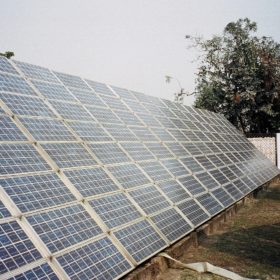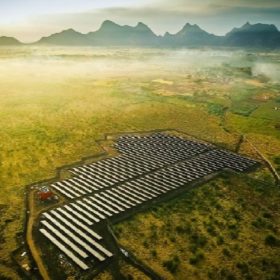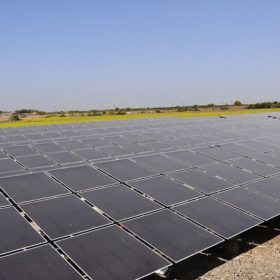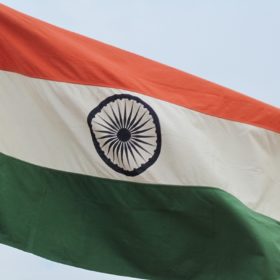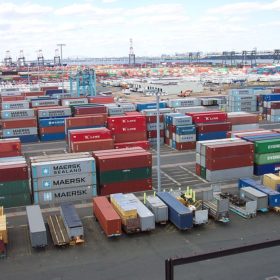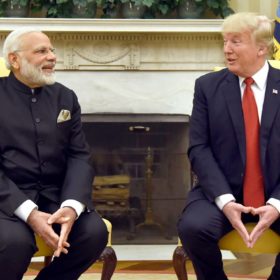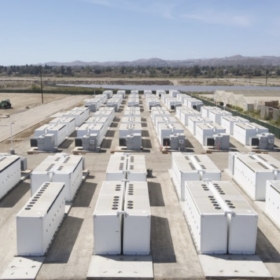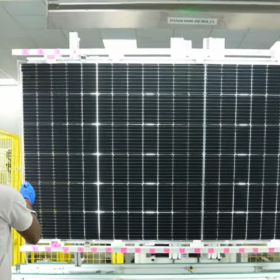25% safeguard duty will threaten ongoing solar PV projects
The two-year period of the recommended safeguard duty is very short, discouraging any investment in setting up new solar manufacturing capacity, say analysts and companies pv magazine spoke to. At the same time, for solar project developers, the duty will impact tariffs to the tune of 12-15%, posing an immediate threat to viability of projects under execution, they add.
LDK Solar awarded $16 million in solar panel dispute with Hindustan Clean Energy
An Indian court has issued a nearly US$16 million arbitral award to Chinese PV company LDK Solar Hi-Tech following its dispute with Indian renewable energy company, Hindustan Clean Energy (formerly Moser Bear Clean Energy) over a solar panel supply agreement. The amount is to be paid within 30 days from the date of the award, and includes the balance of purchase price, liquidated damages and legal fees.
India’s top 10 renewable players claim over 60% of projects, says CEEW-IEA study
Despite this, at least half the companies among the top 10 – in terms of shares of projects sanctioned – changed every year between 2014 and 2017. International independent power producers (IPPs) accounted for around 45% of the sanctioned projects in solar parks. Around 35% of the park projects were awarded to IPPs registered in Mauritius, where companies benefit from preferential taxation.
Bids for bankrupt Moser Baer Solar expected this week
Expressions of interest (EoI) for the assets of bankrupt Moser Baer Solar are likely to be invited this week, resolution professional Arvind Garg announced. The company owes over Rs 1,000 crore (around US$149.8 million) to a number of lenders.
Government initiates anti-dumping investigation for the imports of EVA film for PV modules
RenewSys India has filed an application before the Directorate General of Anti-Dumping & Allied Duties for the imposition of anti-dumping duty on imports of ‘Ethylene Vinyl Acetate (EVA) Sheet for Solar Module’ from China PR, Malaysia, Saudi Arabia, South Korea, and Thailand.
ReNew Power acquires Ostro Energy in $1.54bn deal
According to the reports, Gurugram based developer ReNew Power Ventures has paid 40% in equity and the rest in debt for acquiring Actis LLP-backed Ostro Energy. With this acquisition, now ReNew Power’s combined renewable portfolio stands at 5.6 GW.
With the termination of the anti-dumping investigation, uncertainties will remain, IHS Markit says
On the request of the Indian Solar Manufacturers Association (ISMA), the Directorate-General of Anti-Dumping & Allied Duties have terminated the ongoing petition into imported solar cells. Dharmendra Kumar, an analyst at IHS Markit, told pv magazine that ISMA will re-file this petition in April.
WTO agreed India’s request to form compliance panel
With the current World Trade Organizations (WTO’s) decision, it appears that the solar domestic content dispute between India and the U.S. has stepped forward. Last three-four hearing was just stuck in U.S. rejections of India’s compliance statement.
Government issues penalty for violating DCR under MNRE solar projects
India’s Ministry of New and Renewable Energy (MNRE) will penalize parties found in violation of the MNRE’s Domestic Content Requirement (DCR) rules for solar projects, which the World Trade Organisation (WTO) has approved for DCR use.
The weekend read: Foggy days ahead for Indian solar
India is planning to impose a safeguard duty this year to protect its domestic solar manufacturing sector. Many in the industry earnestly believe that if such duties were to be imposed, then a slowing down in market growth would be inevitable. However, the Indian Solar Manufacturers Association (ISMA) believes this will not be the case. Either way, this duty has created unwanted uncertainty in the market.
